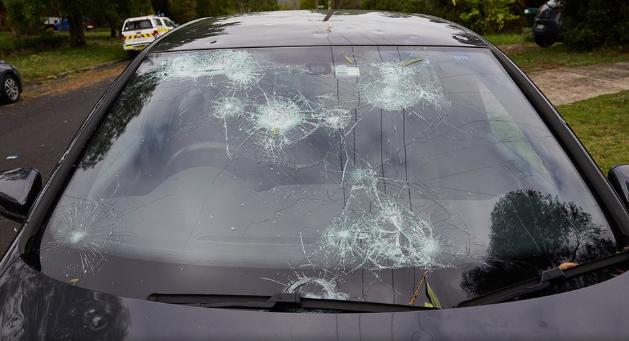There are a number of different scenarios when someone might ask can you insure a car not in your name in Ontario. Perhaps a parent has given full-time use of a vehicle to a member of their family, who doesn’t live at home. Or maybe the car owner is traveling for a year and is allowing a friend to use the car while they are gone. You may also rent a property that comes with a vehicle for the tenant’s use while they are there. In some cases, a person may regularly borrow or rent a car and feel the need to maintain proper insurance.
In all these scenarios, the owner may not want to pay for the insurance on a vehicle they aren’t using, or they may not want any accidents the driver might experience to affect their own insurance rates.
Unfortunately, in Ontario, and in most other jurisdictions, you can’t simply take out an insurance policy on someone else’s property, because you don’t have an insurable interest in that property.
What’s an insurable interest and why is it important?

It’s probably easiest to explain the concept of insurable interest by explaining what insurance does. An insurance policy is designed to indemnify (a legal term that means put you back to where you started) the policyholder in the event they suffer a covered financial loss.
That means, if you lost a $5,000 engagement ring and the loss was covered by your insurance policy, you would receive a replacement ring or the money to buy a new one. (for the sake of this exercise, we’ll ignore the concept of deductibles, depreciation and policy limits that could affect the claims outcome). With a $5,000 cheque in your hands, you are financially back to where you started before you lost the ring.
Taking that idea back to can you insure a car not in your name in Ontario, we’ll look at a similar claim using a car. If you insured a car that wasn’t yours under your name and it was stolen, you could theoretically receive an insurance cheque, even though you had no legal interest in the car and didn’t suffer a financial loss – the owner did.
Taken to a ridiculous extreme, if you were able to buy insurance for a car you don’t own, you could take out insurance policies on the cars owned by bad drivers, in the hope that they get into an accident, so you’d receive a cheque. While it might be a lucrative way to gamble, it would be bad for insurance and would result in higher premiums for everyone.
What car insurance will I need?

Before digging into specific options for insuring a car not in your name in Ontario, we should step back and determine what car insurance coverage you need and what insurance would be nice to have.
Mandatory car insurance coverages
In Ontario, it is required by law that you maintain certain auto insurance coverage and limits. This is to ensure that there is insurance protection to cover damage to property as well as injuries to the driver of the vehicle, its passengers and any third parties who may be involved in the accident, such as pedestrians.
You must maintain these mandatory coverages to legally register and drive a vehicle in Ontario:
Statutory accident benefits
Statutory accident benefits coverage steps in to pay for injuries to the driver and passengers of the vehicle by paying medical costs above and beyond what OHIP covers. It also pays for rehab expenses, attendant care and any expenses related to hiring a caregiver, should you be unable to help those in your care. Statutory accident benefits also include money for non-earners as well as some income replacement coverage if you are unable to work because of the accident. It does not matter who is at fault in an accident for statutory accident benefits to kick in.
The mandatory limits for statutory accident benefits are quite low and may not be enough to cover those who are seriously or permanently injured due to an auto accident. The current limits are as follows:
Medical, rehab and attendant care costs: The mandatory coverage includes up to $65,000 to cover these costs. If you suffered from a catastrophic injury, the benefit increases to $1 million. You can buy increased coverage as high as $1 million in regular benefits and $2 million for catastrophic injuries.
Income replacement coverage: If you are unable to work because of the accident, income replacement coverage will cover 70% of your wages up to $400 per week. This can be increased to $600, $800 or $1,000 a week if you purchase additional coverage.
Caregiver benefits: If you’re not employed, provide full-time care to dependants such as kids or aging parents, and suffer a catastrophic injury, you can claim up to $250 per week for the first dependant and $50 for each additional one. You can increase this benefit to cover all types of injuries (regular and catastrophic) by buying a coverage extension.
Housekeeping and home maintenance: If you suffer from a catastrophic injury because of an auto accident, you can claim up to $100 each week for cleaning and maintenance.
Death and funeral benefits: If you were to die as the result of an auto accident, your spouse will receive $25,000 and each dependant will receive $10,000. The policy will also cover $6,000 for funeral expenses. This can be increased to $50,000 for your spouse, $20,000 to each dependent and $8,000 for funeral benefits.
Third-party liability
Third-party liability kicks in if you’re involved in an accident that injures people who were not in your vehicle. Third-party liability will provide coverage if someone else is injured or killed due to an accident you’re involved in. It will pay the cost of lawsuits filed against you as well as payment to the injured party. It also covers the cost to repair or replace any property that might have been damaged in the accident including the other vehicle as well as items such as fences, bicycles or trees.
Direct compensation – property damage
This section of your auto insurance coverage provides coverage for your vehicle and its contents if you are involved in an accident caused by someone else. It will also pay for a rental car if you’re unable to use the vehicle while it’s being repaired. The coverage is limited to accidents that take place in Ontario involving at least one vehicle that is also insured in Ontario.
Uninsured auto coverage
Uninsured auto coverage ensures that you are protected if you are injured or killed by a hit and run driver or someone who does not have insurance. It will also pay for property damage to your vehicle if it is damaged by a known driver (not a hit and run) who doesn’t have insurance.
These coverages are mandatory for every vehicle registered in Ontario and are included in every car insurance policy.
Optional auto insurance coverages
In addition to the mandatory coverage, everyone needs to have on their vehicle, there are many optional coverages that can help ensure you are fully protected against almost any type of financial loss.
While there are too many options to outline here, we’ll discuss a couple of the most common optional coverages that Ontario drivers buy. For more information on the full suite of coverage, check out our website or give us a call. We’re happy to help you choose the coverages that are best for you.
Collision or upset auto coverage
Collision or upset coverage steps in when your vehicle is damaged in an accident caused by you. This might include another driver, or if you were to hit an object or run off the road. It can real financial lifesaver for the owner of the vehicle, especially if the car is newer or a premium make and model.
Comprehensive car insurance coverage

This coverage will pay for damage to your vehicle if it is damaged while it is not being driven. Common comprehensive claims include acts of vandalism, damage by falling objects (such as ice or a badly flown drone). It will also pay for damage if you hit an animal on the road or if your vehicle is stolen.
The mandatory coverage and optional coverages together form an insurance policy that will protect the driver and the owner of the vehicle, once you determine how best to insure a car that is not owned by you in Ontario.
So, what are your options to insure a car not in your name in Ontario?
If the goal is to ensure that a vehicle that is being used by someone who doesn’t own it has adequate insurance protection, there are a number of workarounds that might suit your circumstance.
Add you as the primary driver to existing policy

Perhaps the easiest fix to the problem is to add the driver of the car to the registered owner’s insurance policy as the primary driver. In this case. the insurance policy will be in the name of the owner of the vehicle, but the primary (and possibly only) driver is the person who actually uses the car.
The pros of this approach are that it’s easy to do and will provide the owner of the vehicle with assurances the vehicle has proper coverage while protecting the driver with Ontario accident benefits coverage, should they or a passenger of the car be injured in an accident.
This approach also ensures the insurance rate is based on the driver’s claims experience and driving record and not the owners. Most companies will also allow the payment to be taken from the bank account or credit card of the driver.
There are a couple of cons to this approach. First, all official documents will be sent to the policyholder, not the driver, which may cause some confusion or delays in communication. Second, any claims activity by the driver could be reflected on the owner’s other insurance policies under certain circumstances.
Add you as co-owner on vehicle registration
If, as we explained earlier, only the registered owner can have an insurance interest in the vehicle, one workaround would see the driver being added to the vehicle registration as co-owner.
The process for this is fairly straightforward in Ontario. Both parties would visit a Service Ontario location, where they would ask a clerk to modify the existing registration to add the new driver. There is a fee for this transaction – at the time of writing, the cost to change a registration in Ontario is $32. A Motor Vehicle Inspection may also be required to add the second co-owner on the registration.
As a co-owner of the vehicle, the driver can now purchase their own insurance policy and list themselves as the only driver. The other co-owner should be added to the policy as an additional insured. This ensures that in the event of a claim, both co-owners will be named on an insurance cheque and both will need to agree on how it will be cashed or spent.
The pros of this approach are that it is fairly simple to execute and both parties are protected by the insurance policy. It also places the administration of the insurance policy in the hands of the primary driver. In the event of a claim or cancellation of the policy, both parties will receive all documentation and will be kept informed of the process.
The cons are that the owner must legally give up total control of the vehicle. While in most cases this might be a big nothing burger, in the event of a major claim, vehicle impound or potential financial loss, there could be friction between the parties on the best way forward. This may place relationships at risk, jeopardizing the ability to indemnify both parties fairly.
Purchase non-owner car coverage
If you regularly borrow or rent a vehicle that is not yours, non-owner insurance might be a solution to your insurance needs.
In general terms, non-owner car insurance coverage steps in to provide liability coverage, which includes any property damage and bodily injury of pedestrians or other drivers (excluding passengers, who are covered under another section of the policy) as a result of an at-fault accident in a car you don’t own.
Typically, the coverage is very limited and only offers specific protection. This usually includes
- Personal injury protection – insurance coverage for injuries resulting from an accident, regardless of who is at fault. This additional protection may also cover other expenses not related to medical treatment, such as lost wages.
- Uninsured driver coverage – insurance coverage in case you’re injured in a hit-and-run accident or are involved in an accident caused by a driver who doesn’t have valid insurance.
In Ontario, you can’t buy non-owner insurance coverage as a stand-alone policy, as it’s only sold as an endorsement to an existing policy. So, you need to own a vehicle registered in your name to purchase this coverage. While this limitation may exclude some of the reasons why you want to insure a car not registered in your name in Ontario, it may be an attractive solution for those who are covered by an insurance policy elsewhere and who regularly borrow a car owned by someone else or rents cars regularly.
The Ontario endorsement includes third-party liability coverage as well as accident benefits coverage to protect the driver and passengers.
Summary
While there is no simple way to answer the question can you insure a car not in your name in Ontario, depending on your unique circumstances, there may be a workaround that protects both the owner of the vehicle as well as the person who drives it.
The easiest way to determine how to best insure a car not in your name in Ontario is to contact the talented insurance specialists at aha insurance. We’ll discuss your unique circumstances and goals and propose a solution that works for you.







